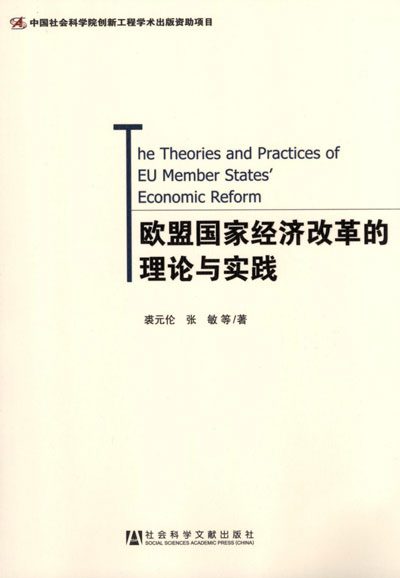QIU Yuanlun,ZHANG Min:Theories and Practices of EU Member States’ Economic Reform

The book seeks to explore the economic theories and practical experience of EU member states after undergoing numerous economic reforms from the theoretical and empirical perspectives. During the process of the economic reconstruction of Europe in the post war era, as a result of the influences of the Keynes doctrine, theory of social market economy and neo-liberalism, many European countries have experienced cyclical changes of economic miracle, long-term stagnation and low growth rate, and also the devastating impact of European debt crisis that is now crippling the economies of the European union.
This book focuses on the readjustment and changes of the macro and micro economic policies and theories of the European Union since the 1990s, with an in-depth analysis of the evolution of the industrial structure of the EU countries, their social security system, capital market, labor market, science and technology policies, environmental protection and many other aspects of policy reforms and practice. In order to deal with the debt crisis, the European Union has taken steps to accelerate the pace of economic reform and economic governance. Considering the great progress that have been made in the European integration process, the powerful economic strength, the huge development potential, as well as the unceasing reform consciousness and rich experience of reform in this regard, it has amply demonstrated that the future of Europe is unlikely to be so dark or dismal in the years to come.
This book was published by the China Social Sciences Academic Press in May 2013. Authors of the book, Qiu Yuanlun and Zhang Min, are professors at the Institute of European Studies, CASS.
